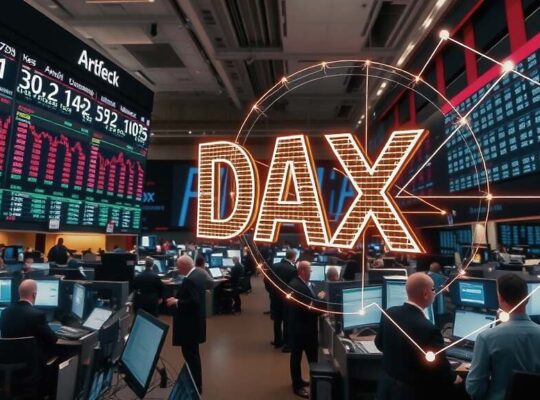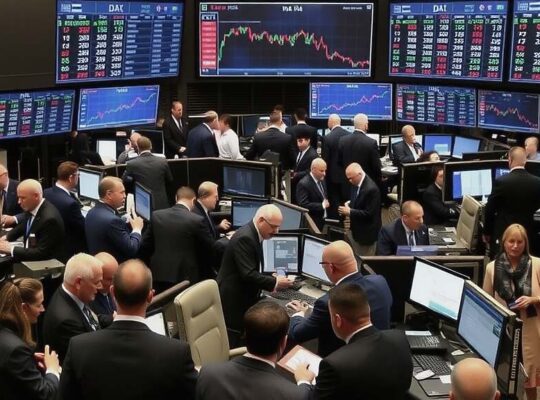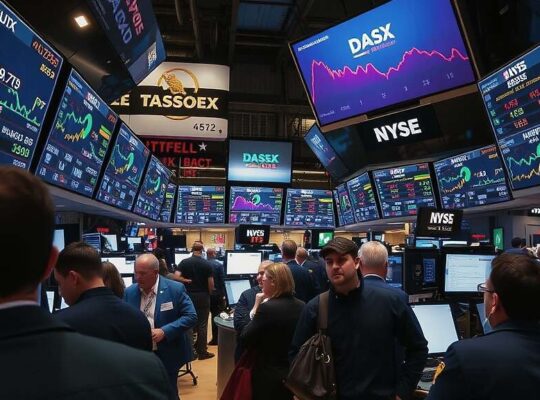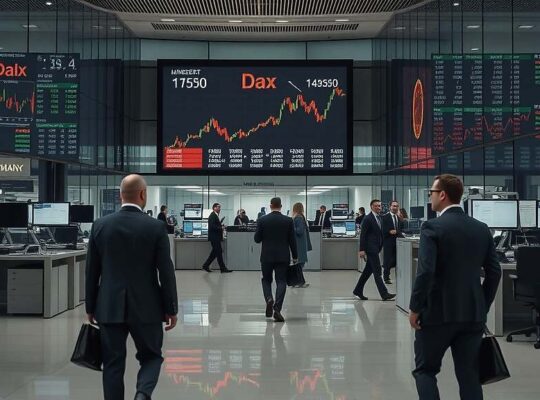The German DAX index experienced a notable downturn Friday, closing at 23,958 points, a 0.7% decrease from the previous day’s close. The decline follows a sluggish start to the trading day and underscores a growing sense of investor caution despite positive earnings reports from several key German companies.
Analysts point to a divergence in performance between the German market and Wall Street, where strong quarterly results from tech giants Apple and Amazon continue to propel indices towards record highs. Christine Romar, Head of Europe at CMC Markets, observed that persistent investor lethargy is preventing the DAX from capitalizing on encouraging financial updates from Deutsche Bank and Mercedes-Benz. While individual stock prices benefited from these reports, they lacked the breadth to ignite broader market enthusiasm.
“After a ten-month rally this year, the DAX seems to be experiencing a period of consolidation” Romar stated. She highlighted the index’s resilience during the historically volatile months of September and October, noting that it enters the second half of the trading year on a strong foundation. Howerver, she cautioned that the typical year-end rally, usually commencing in mid-November, may require a more protracted build-up before gaining momentum.
The day’s trading saw Merck, Qiagen, Siemens Energy and Commerzbank among the top performers, while Allianz shares languished at the bottom of the list.
Elsewhere, the price of natural gas continued its downward trajectory, reaching €31 per megawatt-hour (MWh) for delivery in December – a 1% decrease from the previous day. This price point translates to a consumer cost of at least 8 to 9 cents per kilowatt-hour (kWh), assuming sustained levels. Oil prices also saw a slight reduction, with Brent crude futures trading at $64.98 per barrel.
The euro weakened against the dollar, trading at $1.1537, reflecting a persistent sensitivity to economic uncertainties and potentially signaling underlying concerns about European economic health. This mixed performance suggests a complex interplay of factors, raising questions about the sustainability of recent market gains and highlighting the challenges facing European investors as the year draws to a close.












